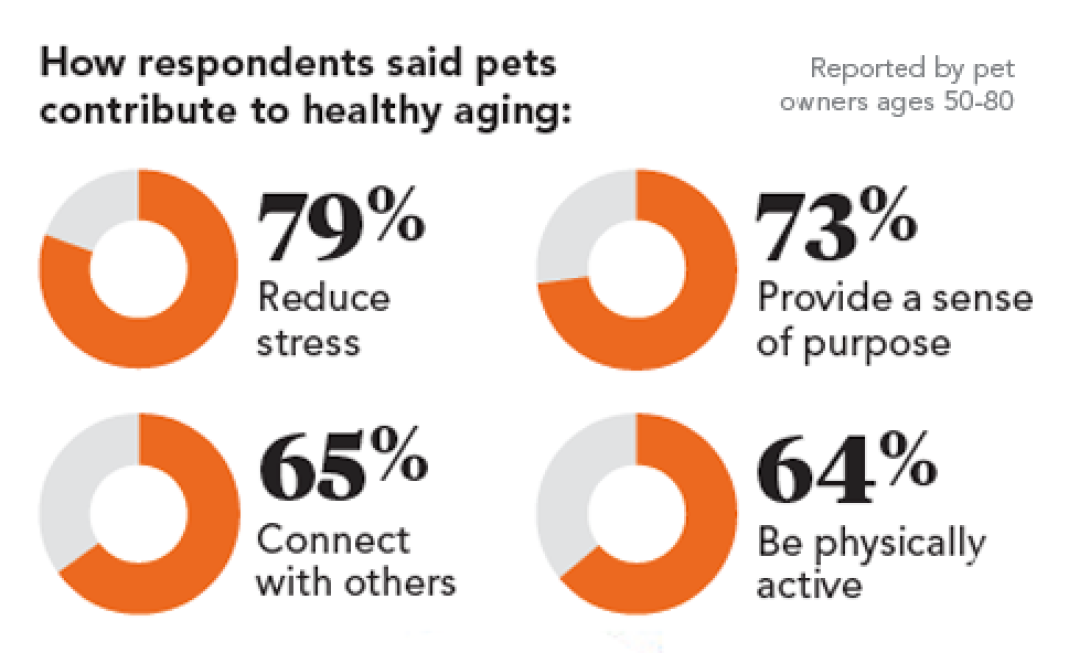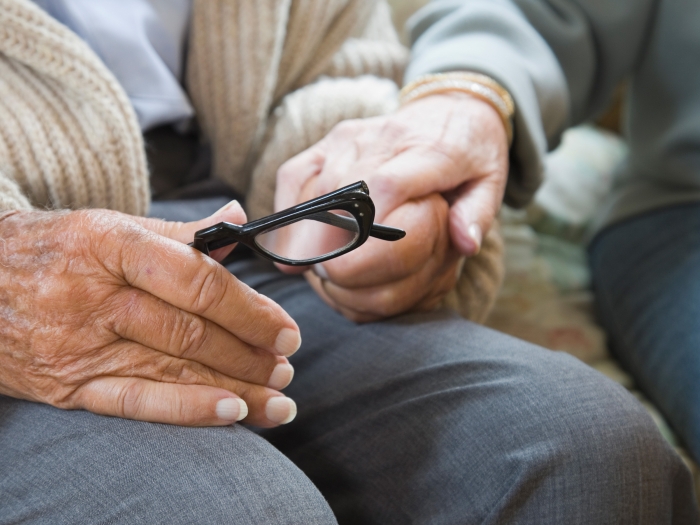
A curled-up cat, a tail-wagging dog, a chirping parakeet, or even a serene goldfish may help older adults cope with mental and physical health issues, according to a poll conducted by the U-M Institute for Healthcare Policy and Innovation, and sponsored by AARP and Michigan Medicine.

While pets come with benefits, they can also bring concerns, and some people may even put their animals' needs ahead of their own health, according to the findings from the National Poll on Healthy Aging. In all, 55% of adults ages 50 to 80 have a pet, according to the findings. More than three-quarters of pet owners say their animals reduce their stress, and nearly as many say pets give them a sense of purpose. But 18% also said having a pet or pets puts a strain on their budget.
Two-thirds of all pet owners, and 78% of dog owners, said their pet helps them be physically active, according to the findings. Poll director Preeti Malani, M.D., professor of internal medicine and chief health officer of U-M, says the poll results indicate a need for physicians and other health care providers to ask older adults about the role of pets in their lives.





